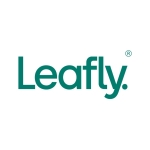Across states that have legalized cannabis, there are local cities and counties refusing to regulate legal cannabis, creating an environment that allows the unsafe illicit market to thrive, according to a first-of-its-kind report from Leafly
SEATTLE–(BUSINESS WIRE)–Today, Leafly, a leading online cannabis information resource and marketplace, released a first-of-its-kind report detailing the unintended, damaging consequences that occur when local municipalities elect to “opt-out” of legal, regulated cannabis sales. Developed in partnership with Whitney Economics, the report reveals the adverse consequences of opting out and explores why local regulation, not local prohibition, is the right way to handle cannabis.
Some states’ cannabis legalization laws allow local municipalities to establish specific regulations within cities and counties. According to the report, instead of regulating legal sales in ways appropriate for their community, it is increasingly common for local leaders to opt-out of local regulation, effectively creating an economic protection zone for illegal street sellers to continue business. This revival of prohibition at the local level exists even in communities that overwhelmingly voted in favor of legal cannabis at the statewide level.
“This report demonstrates that legal, regulated cannabis stores put illicit marijuana dealers out of business,” said Bruce Barcott, the report’s lead author and Leafly’s Senior Editor. “Fears surrounding local cannabis stores may prompt elected officials to prohibit cannabis companies in their towns. But adults in every community already purchase and enjoy cannabis, legal or not. The cities and counties that skip out on cannabis are essentially voting to keep their local illegal marijuana markets in business.”
“Access and taxes, those are the keys to customer migration to the legal market,” said co-author Beau Whitney, founder of Whitney Economics. “And right now we’re seeing illegal cannabis sales propped up by opt-out cities and counties.”
In addition to unintentionally supporting their town’s illegal marijuana dealers, the report found that when local leaders opt out, they also:
- Indirectly encourage adult consumers to purchase illegal products
- Put public health at risk by allowing the circulation of untested products
- Sustain illegal sales to local teens
- Turn away local jobs and tax revenue
- Continue fighting a losing War on Drugs
According to the report, California’s illegal street sellers still satisfy more than 50 percent of the state’s adult consumer marijuana demand, despite the legal market opening up four years ago. It’s no coincidence that 62 percent of the state’s municipalities have opted out of regulated retail sales.
This trend is also taking place in new markets that are opting out before sales begin. In New Jersey, where adult-use cannabis began earlier this year, 71 percent of local municipalities have opted out of legal sales. That has left the state’s adult consumers with few legal options. With only one store for every 358,000 residents, illegal street sellers still command more than 80 percent of the marijuana market.
Today, nearly 45 percent of Americans live in a legal, adult-use state. If pending legalization measures gain approval on the November ballot, half of all Americans could live in a legal cannabis state by 2023. In every newly legal state, local officials will be called upon to regulate cannabis in ways appropriate for their community. Opting out isn’t a vote against marijuana—it’s a vote in favor of illegal dealers. This report provides a critical guide for those policymakers to make local regulatory decisions with research and data-supported facts.
Leafly has been gathering unique cannabis industry data since 2015 with its annual Jobs Report, filling a crucial information gap created by a lack of data collection from the US Department of Labor, which does not count cannabis jobs due to federal prohibition, as well as the annual Harvest Report, the country’s first national-level agricultural report on cannabis.
The full Leafly Opt Out Report can be found here.
Methodology
The data in Leafly’s 2022 Opt Out Report derives from a variety of public and private sources. Unless otherwise noted, data cited by Leafly and Whitney Economics represents market conditions as of July 1, 2022. Cannabis sales figures and active license numbers are dynamic. We chose July 1, 2022, as a firm point-in-time mark to ensure data completeness from all states under review. Number of legal cannabis stores per capita is derived using public licensing data released by state cannabis regulatory agencies. State population is current as of the 2020 US Census. Percentage of cannabis sales captured by legal market was derived by comparing each legal state’s annual cannabis sales with that state’s Total Market Estimation (TME) is defined as the value of total cannabis sales in a calendar year, regardless of the legal status of the product. In this report, TME is based on a Whitney Economics model that assumes approximately one-third of the adult population has consumed cannabis at least once in the past year. Within that assumption are other proprietary calculations regarding consumer demographics, purchase frequency, average basket size, and other factors. This finding differs from other models— such as the annual SAMHSA National Survey on Drug Use and Health, and the annual University of Michigan’s Monitoring the Future report— but after corroboration against several data sets and models, Whitney Economics believes its model is a more consistent top-line number for total consumer demand.
About Leafly
Leafly helps millions of people discover cannabis each year. Our powerful tools help shoppers make informed purchasing decisions and empower cannabis businesses to attract and retain loyal customers through advertising and technology services. Learn more at Leafly.com or download the Leafly mobile app through Apple’s App Store or Google Play.
About Whitney Economics
Whitney Economics is a global leader in cannabis and hemp business consulting, data, and economic research. The firm’s work applying economic principles to create actionable operational and policy recommendations has been recognized by national governments and by leaders throughout the economic, investment, and business communities.
Contacts
Callie Driehorst
PR@Leafly.com


